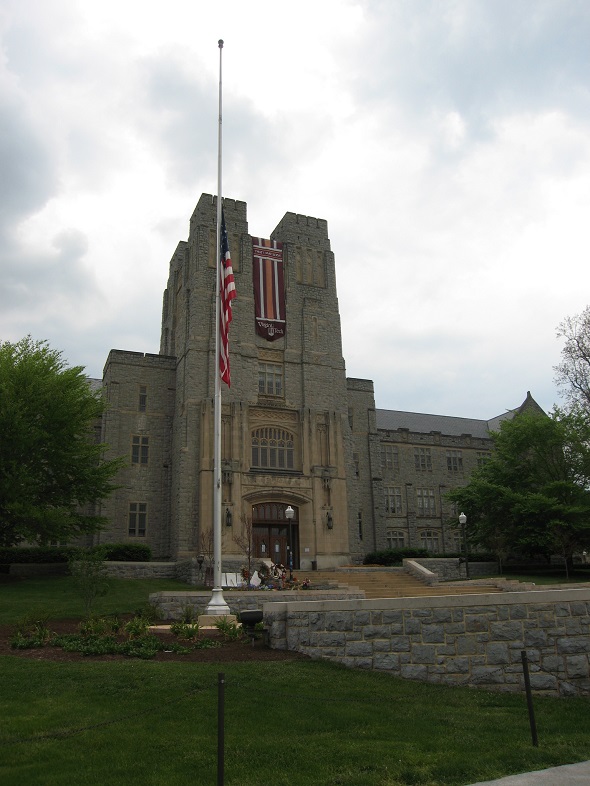I am one among a likely cohort of 300 who developed addiction in Blacksburg, Virginia after the Virginia Tech shootings. I developed an addiction to alcohol.
According to research on the relationship between community violence, trauma, and addiction, of the 40,000+ people living in Blacksburg, Virginia in 2007, research predicts 15% of them would develop post-traumatic stress disorder, PTSD. That would be 6000. Of that 6000, research predicts 5% would develop addiction. That’s 300.
Addiction is defined as continuing to drink, use or do despite negative consequences. The person’s actions don’t make sense, yet he or she persists. It’s irrational. Brain studies now show us rational data to explain that irrationality: the very brain structures and networks needed to recognize cause-and-effect relationships, make decisions, and other executive functions – to stop what we’re doing – have become impaired.
For me, that meant drinking wine at 5:00 PM, falling down the stairs, cracking my bones and skull on the steps, banister, and walls, vowing never to drink again, and shifting my weight to ease my bruised body while I poured the first glass of wine at 5 o’clock, again, the next night.
What was not known in 2007 but is known 10 years later, thanks to the Surgeon General’s report, Facing Addiction in America, is that people with addiction just need to be taken early, at the first signs, to a doctor. No drama, just medical care for the medical condition of addiction. Then to be screened for mental illnesses that may accompany addiction. Like PTSD.
I have disclosed publicly that I developed alcoholism and have experienced first-hand, in the fish bowl of a small town, the stigma of addiction and its heartbreaking consequences. Comments like “All alcoholics should be shot at dawn – and that goes for drug users as well,” abound on the Internet and are unspoken in many minds and hearts. New Virginia laws mandating if and how people with opioid addiction can receive life-saving medication are based on the medieval premise that people with addiction got themselves into this in the first place. The belief is that if they suffer from it, even die from it, they deserve it.
I hope members of my likely cohort of 300 who developed addiction after the Virginia Tech shootings will reach out to me. I will ask them if I can do for them what should have been done for me. I will ask if I can take them to a doctor. And I will never disclose their identities. It’s not safe out there.
Photo: Steve Jacobs, Flag at half mast, Burruss Hall, Virginia Tech, May 5, 2007


